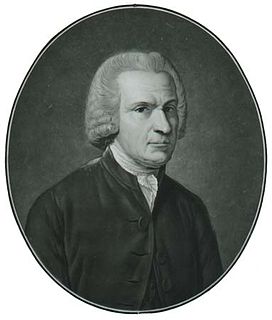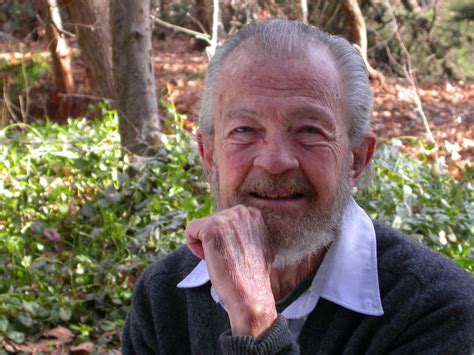A Quote by Steven Erikson
Such is the vastness of his genius that he can outwit even himself.
Related Quotes
Genius is answerable only to itself; it is the sole judge of the means, since it alone knows the end; thus genius must consider itself as above the law, for it is the task of genius to remake the law; moreover the man who frees himself from his time and place may take everything, hazard everything, for everything is his by right.
Genius is by definition a style of consciousness characterized by the ability to access high energy attractor patterns. It is not a personality characteristic. It is not something that a person has, nor even something that someone is. Those in whom we recognize genius commonly disclaim it. A universal characteristic of genius is humility. The genius has always attributed his insights to some higher influence.
The genius of a composer is found in the notes of his music; but analyzing the notes will not reveal his genius. The poet's greatness is contained in his words; yet the study of his words will not disclose his inspiration. God reveals himself in creation; but scrutinize creation as minutely as you wish, you will not find God, any more than you will find the soul through careful examination of your body.
The Plagiarism of orators is the art, or an ingenious and easy mode, which some adroitly employ to change, or disguise, all sorts of speeches of their own composition, or that of other authors, for their pleasure, or their utility; in such a manner that it becomes impossible even for the author himself to recognise his own work, his own genius, and his own style, so skilfully shall the whole be disguised.
At that instant he knew that all his doubts, even the impossibility of believing with his reason, of which he was aware in himself, did not in the least hinder his turning to God. All of that now floated out of his soul like dust. To whom was he to turn if not to Him in whose hands he felt himself, his soul, and his love?
The man who succeeds above his fellows is the one who early in life, clearly discerns his object, and towards that object habitually directs his powers. Even genius itself is but fine observation strengthened by fixity of purpose. Every man who observes vigilantly and resolves steadfastly grows unconsciously into genius.
No man could bring himself to reveal his true character, and, above all, his true limitations as a citizen and a Christian, his true meannesses, his true imbecilities, to his friends, or even to his wife. Honest autobiography is therefore a contradiction in terms: the moment a man considers himself, even in petto, he tries to gild and fresco himself. Thus a man's wife, however realistic her view of him, always flatters him in the end, for the worst she sees in him is appreciably better, by the time she sees it, than what is actually there.
A man cannot free himself by any self-denying ordinances, neither by water nor potatoes, nor by violent possibilities, by refusing to swear, refusing to pay taxes, by going to jail, or by taking another man's crops or squatting on his land. By none of these ways can he free himself; no, nor by paying his debts with money; only by obedience to his own genius.
In his scientific genius, man has wrought material miracles and has transformed his world. He has harnassed nature and has developed great civilizations. But he has never learned very well how to live with himself. The values he has created have been predominantly materialistic; his spiritual values have lagged far behind. He has demonstrated little spiritual genius and has made little progress toward the realization of human brotherhood. In the contemporary atomic age, this could prove man's fatal weakness.






































